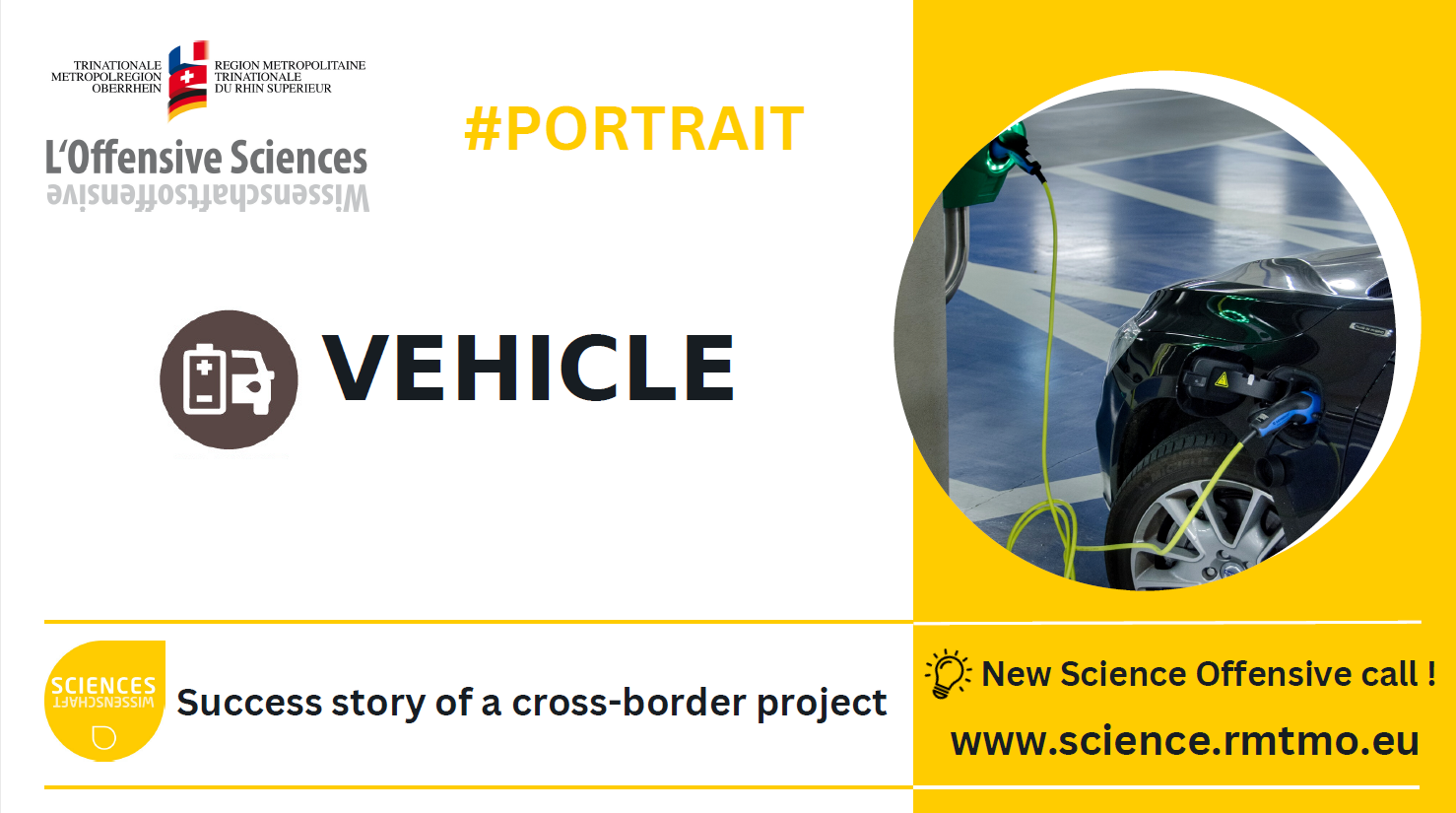The transport sector, a major emitter of CO2, must undergo profound changes to reduce its impact on the environment. Electrification is an important issue for the industry, with technological challenges to be solved. The VEHICLE consortium has developed an innovative solution to improve energy storage in electric vehicles. Tedjani Mesbahi, an associate professor at INSA Strasbourg in the Heterogeneous Systems and Microsystems team of the ICube laboratory, was the scientific leader of the project.
Developing efficient technologies for energy storage, a major challenge for the ecological transition
On 27 October 2022, the European Union reached an agreement to ban fossil fuel vehicles from 2035. Only new electric cars will then be allowed on the market. With the electrification of the mobility sector, energy storage devices become increasingly important in our daily lives. At present, electric vehicles are powered by Li-ion (lithium-ion) batteries, which suffer from major shortcomings: they are slow to charge, have a limited lifespan and rely on the use of non-renewable resources. The environmental issue is therefore coupled with a major technological challenge: finding innovative solutions to make energy storage more efficient, cost-effective and sustainable.
An innovative solution combining two storage technologies and artificial intelligence
The project partners had their own area of expertise: modelling and software development for INSA Strasbourg, electrochemistry for Hochschule Trier, and systems integration (travel, weather) for Hochschule Karlsruhe. “It has been very beneficial to work together. We separated the tasks, which is unusual for this type of project, but it worked well and allowed us to move forward and not fall behind, despite Covid,” says Tedjani Mesbahi. Thanks to this complementarity and organisation, the teams developed a solution, which is innovative in three respects. Firstly, the researchers combined two storage technologies: high energy and high power. In concrete terms, a hybrid storage source composed of Li-ion batteries and a supercapacitor was designed. Supercapacitors charge quickly and can provide peak power, but they have a low storage capacity and low autonomy. Li-ion batteries compensate for these shortcomings. Second, artificial intelligence has been used to make energy storage devices more efficient and improve their lifetime. Sensors collect data to better understand their behaviour, and predictive maintenance is implemented to slow down their ageing. “This intelligent energy management strategy extends the lifespan of the hybrid source by 19%”, saysTedjani Mesbahi. In the future, other data on driving style and environment (nature of the road, temperature) could be integrated to provide personalised advice to further increase the lifespan. Finally, this efficient and intelligent energy storage system is coupled with a synchronous variable reluctance machine to optimise energy consumption. Overall, the solution proposed by the VEHICLE consortium makes it possible to reduce the total cost of ownership of an electric vehicle.
What next? Technology transfer and a new European project!
The VEHICLE project has established links with companies in the mobility and energy storage sectors from the outset in order to facilitate technology transfer. Throughout the project, webinars bringing together researchers and industry experts have been held, and Volvo Construction Equipment Germany and Daimler Truck presented their work on the electrification of trucks at the final conference of the project. The technology developed is also used in another context. Théophile Paul, who defended his thesis in July 2022, is applying the hybrid energy storage system on an electric handling truck for Industry 4.0. His entrepreneurial project, supported by SATT Conectus, was one of the winners of the French i-PhD innovation competition. And Tedjani Mesbahi and his collaborators will soon be tackling a new major project : the Horizon Europe framework programme for research and innovation will fund their ENERGETIC project. The aim is to make the European industrial battery value chain more competitive. News of this exciting project will be posted on the INSA Strasbourg research blog.
The VEHICLE project (for “AdVanced li-ion battEry/supercapacitor HybrId energy storage system with synchronous reluctance maChine for eLEctric vehicle applications”), initiated in September 2019, ended in July 2022. Co-funded by the European Union under the Interreg V Upper Rhine programme and by the French and German regional partners of the “Science Offensive” initiative, it brought together three main academic partners: INSA Strasbourg, Hochschule Karlsruhe and Hochschule Trier. Sheffield Hallam University, École Centrale de Lille and the University of Nantes were associate partners in the project. The Science Offensive: Based on its success, the initiative is to be continued for the period 2021-2027, for which two calls for projects are planned. Building on the dynamism of cross-border scientific cooperation, the co-financing partners of the Science Offensive now want to support the transfer and exploitation of the results of public research and strengthen the positive effect of scientific findings on businesses and society, for the benefit of the economic, social and ecological development of the Upper Rhine Trinational Metropolitan Region. The fourth call for projects of the Science Offensive has been launched on January 5th 2023 (closing date: 24th of March 2023) and focuses on knowledge and technology transfer while contributing to the objectives of the Trinational Metropolitan Region of the Upper Rhine. You can find all informations on the Science Offensive on the Website of the Science Pillar
